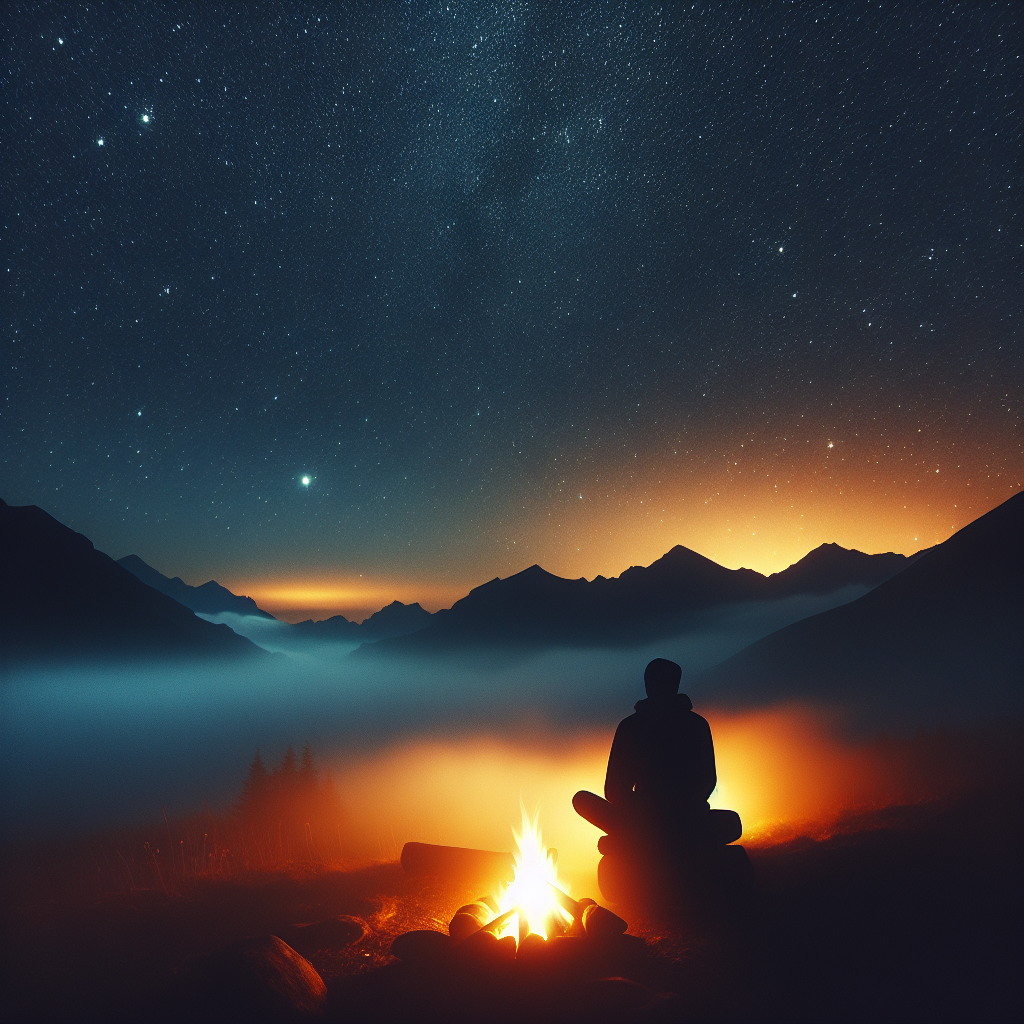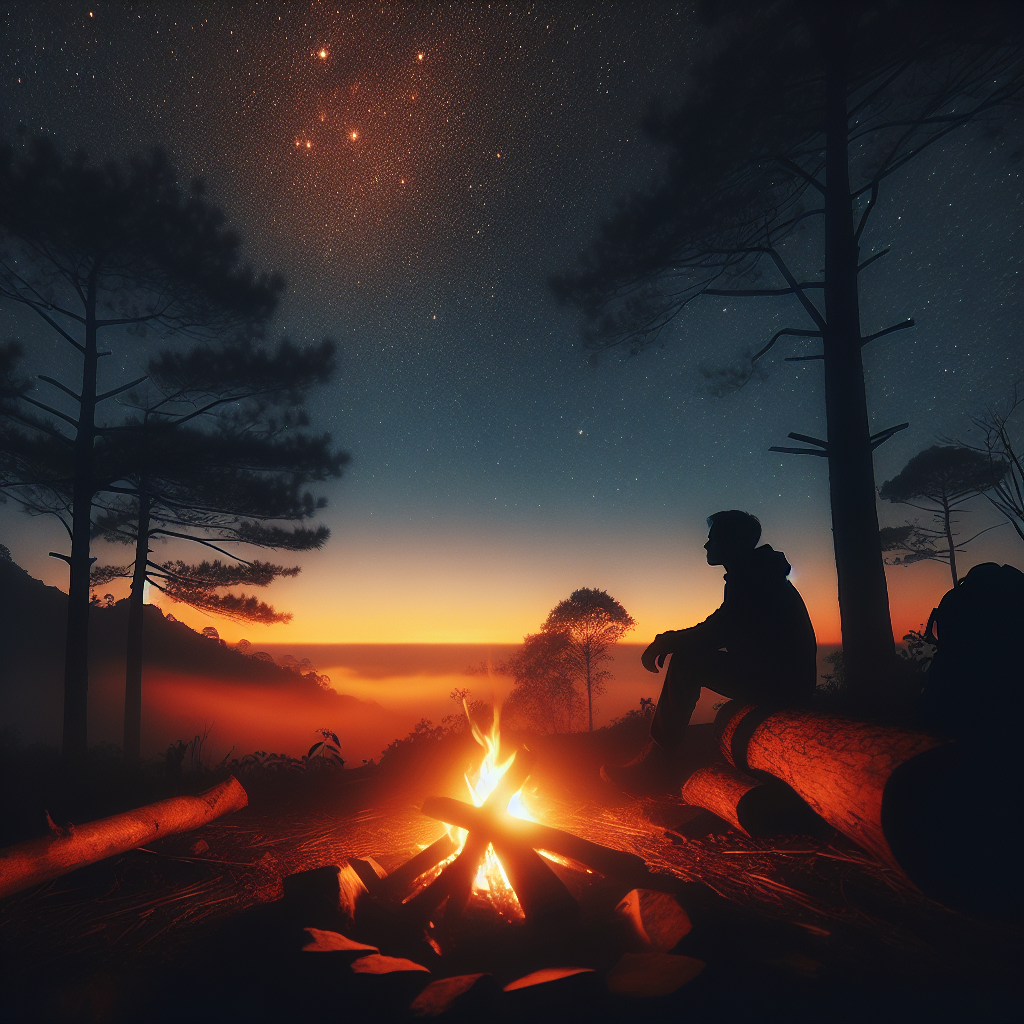Imagine being in the great outdoors, with nobody but yourself and nature. Nothing but the rustling wind for company, the chirping birds your background music. It’s just you and the magnificent beauty of the great outdoors. “The Psychology of Solo Camping: Mental Preparation” looks at exactly this scenario. It’s not just about packing the right gear and choosing the perfect site, being mentally prepared for a solo adventure like this is crucial. This article offers valuable insights on how to prepare your mind for such an experience, helping you not just survive, but thrive on your solo camping trip.
Understanding the Draw of Solo Camping
Solo camping is an attraction that’s not easily explainable. Some people are drawn to the tranquility of solitude, while others find it cathartic and grounding. Many enjoy the challenge, the freedom, and the opportunity for deep self-reflection that isn’t afforded in everyday life.
Exploring the attraction to solitude
Solitude, for many, is a rare entity. The time alone, away from digital distractions, social pressures, and engaged in nature can be incredibly therapeutic. It is a chance to appreciate the quiet beauty surrounding you and inside of you, bringing you back to a sense of self and inner peace. It’s this sense of calmness and clarity that attracts many to solo camping.
Benefits and challenges of solo camping
Solo camping offers an array of benefits, most notably the sense of independence and self-reliance it fosters. Planning, setting up camp, and staying safe alone in the wilderness can build incredible resilience and confidence. However, it is not without its challenges. Isolation and frustration may pop up, things might not go as planned, or loneliness could settle in.
Fulfillment from self-reliance
Being completely reliant on your skills and resourcefulness, and succeeding, brings a sense of accomplishment that very few other experiences can. The importance of problem-solving, critical thinking, and survival skills become more evident and fulfilling when solo camping.
Importance of Mental Preparation for Solo Camping
As with anything, preparation is key. In the context of solo camping, while physical preparation is crucial, mental readiness can be a make-or-break factor.
Why mental preparation matters
Mental preparation is critical as it shapes your response to challenges and unexpected situations. By mentally preparing yourself, you’re not only envisaging possible scenarios but also figuring out how to deal with potential outcomes.
The connection between mental fitness and survival
Your mental fitness greatly influences your ability to survive out in the wild. This includes problem-solving ability under pressure, managing emotions amidst challenges, and keeping a positive attitude when faced with adversity. All these are integral to your overall camping experience and, at times, survival.

Developing a Positive Mindset
Having a positive mindset is an important factor in the success of any endeavor.
Promoting self-confidence
Building your self-confidence stems from repeatedly overcoming obstacles and rising to challenges. As a solo camper, you are pushing yourself out of your comfort zone, providing an ideal opportunity to foster your self-confidence.
The power of optimism
Optimism is a powerful tool, especially when you’re out in the wilderness on your own. By visualizing positive outcomes and maintaining a hopeful outlook, you’re more likely to persevere when things get tough.
Overcoming fears and doubts
It’s completely natural to experience fears and doubts, particularly when alone in unfamiliar settings. However, by acknowledging these feelings and using strategies to overcome them, you’re enhancing your capabilities and augmenting your confidence.
Stress Management Techniques for Solo Camping
Stress management in a solo camping scenario is critical. You need to ensure your mental wellness while being wary of your surroundings.
Exploring mindfulness
Mindfulness is the art of staying in the present moment, accepting thoughts and feelings without judgement. It helps in decluttering your thoughts for better focus and relief from stress.
Breathing exercises for stress relief
Deep breathing exercises can do wonders for your stress levels. When your heart rate accelerates due to stress, deep breathing exercises can help you regain control, drastically reducing your stress.
Cognitive Therapy techniques
Cognitive Therapy techniques can help in reframing negative thoughts, solving problems effectively, and coping with solitude.

Building Affective and Psychological Resilience
Resilience is integral in unfamiliar and challenging circumstances, such as solo camping.
The concept of resilience
Resilience, in this context, refers to your capacity to bounce back from adversity and to adapt well over time to life-changing situations and stressful conditions.
Ways to boost resilience
There are several ways to build resilience such as maintaining a positive outlook, practicing mindfulness, fostering self-esteem, and maintaining good physical health.
Coping mechanisms for difficulties and setbacks
When faced with difficulties and setbacks, it’s important to maintain a positive attitude and not let it diminish your spirit or motivation.
The Aspect of Fear in Solo Camping
Understandably, there could be elements of fear involved in solo camping.
Understanding Fear
Fear arises from perceived threats. Understanding and acknowledging your fear is the first step in managing it.
Managing fear of the unknown
The fear of the unknown is perhaps the biggest fear that we face. Instead of letting it hinder your experience, use it as a stimulus to explore and learn.
Strategies to fight fear
Some practical strategies to combat fear include rationalizing the situation, meditating, deep breathing practices, and reminding yourself of your strengths to bolster your confidence.
Mental Tools for Solitude and Isolation
Isolation and solitude are inevitable when solo camping; the trick is managing them appropriately.
Coping with loneliness
While solitude can be a beautiful thing, loneliness might occasionally creep in. Embrace it as a chance to self-reflect, self-express and to enjoy your own company.
Keeping the mind active
Keeping the mind active is a great way to combat solitude. Elaborating on thoughts, organizing your day, or asking yourself questions are some ways to engage your mind.
Leaning on hobbies and interests
Hobbies and personal interests are great distractions against loneliness. Whether it be reading, writing, or sketching, these activities can keep your mind engaged and happy.
The Role of Self-Care in Solo Camping
Self-care during solo camping tends to lean towards ensuring physical health but maintaining mental health is equally important.
Physical self-care strategies
Physical self-care includes maintaining a good diet, ensuring proper hydration, regular physical activity, and getting adequate rest and a good night’s sleep.
Mental self-care methods
Mental self-care can encompass activities like meditating, journaling your thoughts and feelings, engaging in positive self-talk, and practicing mindfulness.
Coping with homesickness
Homesickness is a common emotion when solo camping. Engage in activities you love, frequently check-in with loved ones, or carry a few comforting mementos from home to help ease any feelings of homesickness.
Visualization and Mental Practice
These are excellent mental strategies that can assist in solo camping experiences.
The benefits of visualization
Visualization is a mental practice that involves seeing yourself carry out a task successfully. It’s a key technique to building up your confidence and for better problem-solving.
Implementing mental practice
Mental practice is a cognitive rehearsal of a physical action. By rehearsing your actions mentally, you’re essentially gearing yourself up to perform the task effectively.
Visualizing success in camping scenarios
Try to visualize setting up camp or successfully navigating a trail. This can help you prepare more effectively and respond better to actual situations.
Encouraging Growth Mindset and Openness to Learning
Having a growth mindset and an openness to learning is a key part of solo camping.
Benefits of a growth mindset
A growth mindset encapsulates the belief that skills and abilities can be developed through dedication and hard work. It encourages you to embrace challenges, persevere during setbacks, and learn from criticism.
Continual learning and adaptation
Solo camping offers innumerable learning opportunities, from learning to adapt to evolving conditions to new survival skills. It encourages continual learning and adaptation.
Mitigating mistakes and learning from them
Mistakes are not setbacks but opportunities to learn and grow. By adopting a growth mindset, you can effectively learn from your mistakes and refrain from repeating them.
There you have it, a comprehensive look into the psychology of solo camping. It’s about the enjoyment of solitude, the thrill of self-reliance, the importance of mental preparation and resilience, and most importantly, the celebration of personal growth and learning. Happy Camping!

